Mascoma track athlete recovering from heart transplant
| Published: 07-02-2023 9:04 PM |
Until this February, Josh Park was living a normal teenage life.
A junior on the Mascoma High track team, Park was unanimously voted the boys’ team captain for the winter indoor season, even though he takes most of his classes online and only attends Mascoma for Spanish and web design. He joined the track team as a sophomore, specializing in the sprints, long jump and javelin, and said most of his friends are from the team.
During the week leading up to the state meet, Park began experiencing a cough, stomach aches and heart palpitations. So he asked coach Rick Currier if he could cut some of his workouts short, eventually deciding he would not be able to compete at states.
After his condition worsened, Park underwent a series of tests at Dartmouth Hitchcock Medical Center, and the results were devastating: He had experienced heart failure.
Park was admitted to the Pediatric Intensive Care Unit at DHMC on March 1, and three days later, he was transferred to the Cardiac ICU at Boston Children’s Hospital, where he remained for more than a month and underwent an initial surgery to steady his heart before being discharged on April 11.
“The toughest part was waking up from (the initial) surgery,” Park said in late April. “I had this horrible delirium where I was just confused and in a horrible mental state for days.”
After spending a month-plus back home in Enfield regaining his strength, he got the call from Boston Children’s for a heart transplant and underwent surgery on May 19. Park and his parents are still in Boston so that he can receive regular treatment and be near important resources like a nutritionist, a pharmacist and a social worker.
Since he received the transplant, Park has been discharged and readmitted to the hospital three times, with the most recent admission coming Wednesday after his heart rhythm became erratic again. Instead of his regularly scheduled biweekly cardiac catheterization — a procedure in which a thin tube is guided to the heart to diagnose or treat certain conditions — Park received an ablation on Thursday, which is a procedure for restoring normal heart rhythm.
Article continues after...
Yesterday's Most Read Articles
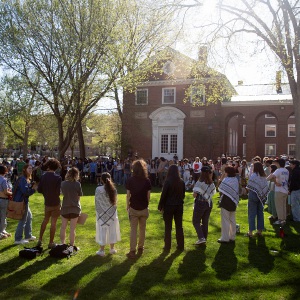 Dartmouth administration faces fierce criticism over protest arrests
Dartmouth administration faces fierce criticism over protest arrests
 Three vie for two Hanover Selectboard seats
Three vie for two Hanover Selectboard seats
 A Look Back: Upper Valley dining scene changes with the times
A Look Back: Upper Valley dining scene changes with the times
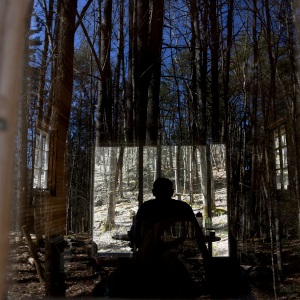 Norwich author and educator sees schools as a reflection of communities
Norwich author and educator sees schools as a reflection of communities
Park recently turned 17, and at his age, this isn’t what he signed up for.
“I have this feeling of missing my old life,” Park said. “Not being able to be normal is the main thing. I’m still having a hard time understanding why this happened, or even what happened to me.”
Once Park arrived in early March at Boston Children’s, which was named the No. 1 children’s hospital in the country in the U.S. News & World Report 2022-23 rankings, he continued undergoing diagnostic tests and was placed on heart failure medications.
He was eventually diagnosed with idiopathic cardiomyopathy, which the National Library of Medicine describes as “a primary cardiac disorder associated with abnormalities of ventricular wall thickness, size of ventricular cavity, contraction, relaxation, conduction and rhythm.”
The three heart failure medications were effective at first, and Park’s mother, Ivy, said he was eating well and was on track to transition to the step-down unit. But soon, his heart stopped responding to the medicine, and the doctors would not let him eat or even get out of bed due to fear of cardiac arrest. His blood pressure plummeted, and his heart rate skyrocketed.
“He almost passed away six to seven times,” Park’s father, John, said. “This line connected to his heart about 3:30 in the morning (was) filled with blood. They had to pull it up with a surge compressor. They also had to remove the fluid from his chest — his chest was open.”
On March 16, Park underwent a heart and lung bypass surgery to implant a left ventricular assist device (LVAD), a mechanical pump implanted in his chest that helps his weakened heart supply blood to the rest of his body. There was a small chance that his heart would fully recover with the LVAD, but it was really a placeholder until he was able to receive the transplant.
The LVAD required him to carry a battery pack and a sensor in a bag over his shoulder. It weighed five pounds, the most visible part of the burden he took with him everywhere after his first stint in the hospital.
“He knew what was going on (after the bypass surgery). He could tell where he was, what was happening,” said Ivy Park, who works at DHMC as the nurse manager for the hematology-oncology inpatient unit. “He was telling me that it was just hard to differentiate between what was real and what was not. They call it ICU delirium. He was sedated for five days, and the nurses even tried to bring him out in the daylight, we went to the rooftop, and he was just not interested at that time.”
Even though the Parks were a two-hour drive from home, they still had a steady stream of visitors, which became an issue because only two guests at a time were allowed in the hospital room. At one point, Ivy noticed that her son’s room could use more decoration, and soon after she reached out to a friend, the room was teeming with balloons.
One of Ivy’s colleagues at DHMC set up an online fundraiser for the family to help cover Park’s medical expenses, and more than $23,000 had been donated as of Friday. The money will also help with the Parks’ temporary housing in Boston and is necessary for the family as Ivy is currently on personal leave and without income so that she can stay with her only child.
“They were very supportive of me being able to be away to take care of him,” Ivy said. “The managers pulled in to help me, even the director of nursing. … They gave my supervisors overtime pay so that they could pick up some of my extra work. They sent us food. One of the docs sent me a care pack with a toothbrush, toothpaste, lotion, tea.”
Park was transferred to the cardiac step-down unit on March 29, continuing with physical therapy even with a tube attached to his chest. His medications were adjusted to control the pain of the tube being removed two days later, and by early April, Park was showing signs of progress — he was able to carry the LVAD pack and no longer needed adjustments to his heart medications.
On April 11, the day Park was discharged, his Mascoma teammates had a meet at John Stark Regional High School in Weare, N.H. The Parks made a few stops on their drive back to Enfield because Josh was still in pain. One of those stops was at a McDonald’s off Interstate 89 in Warner, where he had a chance run-in with the track team, which was making a pit stop on the way home from the meet.
“It was just meant for us to meet at that place,” Currier, the coach, said. “There were a lot of smiles when Josh was there. There were a lot of tears, but they were happy tears. It was just a wonderful reunion. They were really getting to ask him a lot more in person about some of the stuff he’d been through.”
During his time at home, Park learned to live with the LVAD while resuming classes online, eventually returning to Mascoma to take Spanish. He said in late April that he still had trouble bending forward and lifting heavy things, and running and rock climbing (his other passion) were out of the question. But he improved to the point where he stopped going to physical therapy, having gained enough strength back without it.
Park was even able to attend Mascoma’s prom on May 13, with his parents waiting in the parking lot outside the venue at Ragged Mountain Resort in Danbury, N.H., in case there were any issues.
“It was mostly all right. I did have some pain (from) jumping around,” Park said. “I had to just calm myself down a little more than usual and watch myself a little more, just because of my LVAD.”
On April 26, Park was placed on the waitlist for a heart transplant, meaning he and his parents would need to be prepared to head to Boston at a moment’s notice when a new heart was ready for him. The call came on the night of May 18, and Park received the transplant the next afternoon.
The heart transplant procedure went smoothly, and Park woke up from the surgery on May 22, just in time to celebrate his 17th birthday. But he was still feeling delirious from the long sedation and said it was hard to enjoy the special day.
Still, the hospital staff wished him happy birthday right at midnight, and he received balloons, chocolate and a Lego Star Wars set, among other gifts.
With the transplant, he would no longer need to carry around the LVAD with him. But there were other complications.
His release was delayed because of a huge blood clot near his collarbone, which Ivy said was caused by one of the medications he was given to contain his bleeding during the surgery. Park’s left arm swelled to twice its normal size with no blood flow, forcing him to wear a sling around it.
“It was easily one of the worst experiences of my life,” Park said. “First, there was the pain of having chest tubes in after surgery; that was one of the worst parts. The clot in my arm was nonstop pain all day, even after painkillers. Even those weren’t helping too much.”
Although the clot has gotten much easier to manage, Park continues to self-administer an injection twice a day to make sure it doesn’t get worse. He still has to exercise that arm because he is unable to fully stretch it.
The doctors also tried to increase Park’s anti-rejection medications before he had fully recovered from the anesthesia, leading to bouts of nausea.
Park was discharged initially on June 6, but almost immediately afterward his heart rate continued to fluctuate and got as high as 220 beats per minute. (A normal standing heart rate is between 60 and 100 bpm.) So he went to the emergency department the very next day, was readmitted to the hospital the following day and was back in the ICU the day after that.
He was put on several beta blockers to control his heart rate, and it wasn’t until the fifth one the doctors tried that they found an effective one. He was also put on an additional medication to help deal with the effects of the beta blocker.
It almost goes without saying that such steeply up-and-down experiences take total control of a person’s life.
“In those moments when the situation is at its peak or is aggravated, that’s all Josh could think of,” Ivy said. “He couldn’t think about other things except how to get through that next hour, the next minute, the next day. Now that he’s better, it gives him time to (reflect) on a lot of things that have happened. Sometimes he jokes about it, but at the time, it’s all he could focus on. And of course as parents, it’s painful to watch.”
When not in the hospital, the Parks are now staying in low-cost housing near Boston Children’s that they found through the Hopkinton, Mass.-based nonprofit Live4Evan, which provides temporary housing for families of children with heart abnormalities, and they will likely be there through the end of July.
Park’s first two cardiac catheterizations showed no signs of him rejecting the new heart. The doctors have said the first three months after the heart transplant are the hardest, and readmission is common.
He has tried to update his friends on a daily basis, even making sarcastic jokes about everything he’s gone through. Above all, though, he wants them to understand that his journey did not end when he received the new heart — if anything, the transplant was just the beginning.
“I wish people would just understand or even could try to understand what this feels like,” he said. “They are definitely being empathetic, but there’s only a certain level of understanding that can come from me explaining it. The transplant is really just trading one hardship for a lesser form of hardship.”
Members of the track team, meanwhile, have not forgotten their captain. The Royals made warm-up shirts, funded by the athletic boosters, that read “All For One, One For Park” on the back, along with a rendering of a long jumper to represent Josh’s best event.
A return to running, jumping and climbing is off the table until at least the fall, but Park is hopeful that he can get back on the track with his teammates for his senior season. By November, six months out from the transplant, the doctors said he should start to feel like himself again and be able to return to activities.
“It feels like there’s that conclusion already, but on our end, it’s an ongoing thing,” Ivy said. “It’s a change in our lives, and it’s a new lifestyle. We’re still in the process of accepting it. Before March, he was perfectly healthy and strong, and he had this routine in his life where he could hang out with his friends. And all of a sudden, it’s all changed.”
Benjamin Rosenberg can be reached at brosenberg@vnews.com or 603-727-3302.


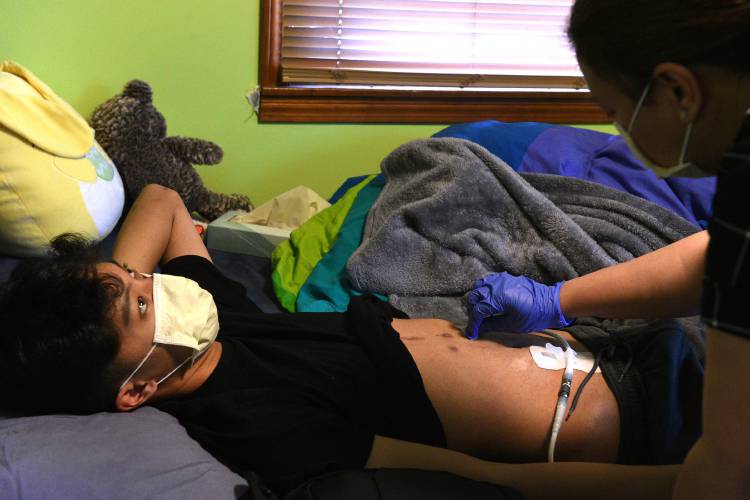
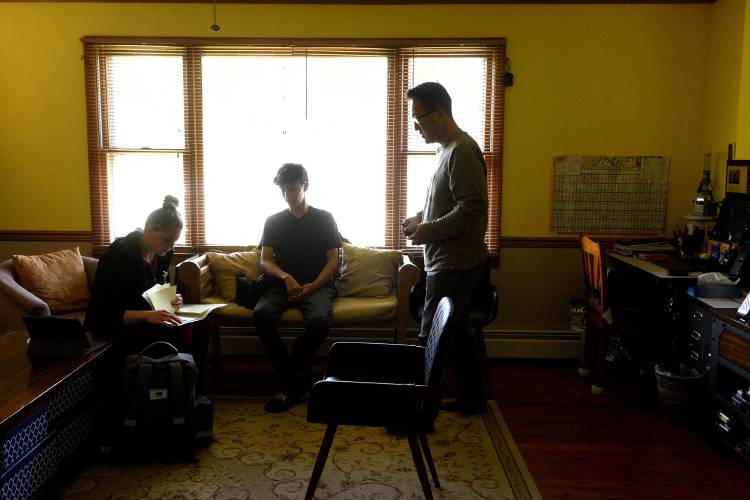
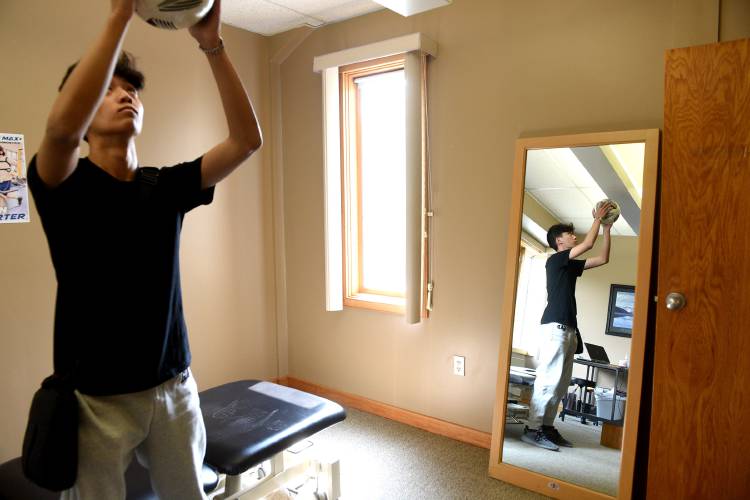
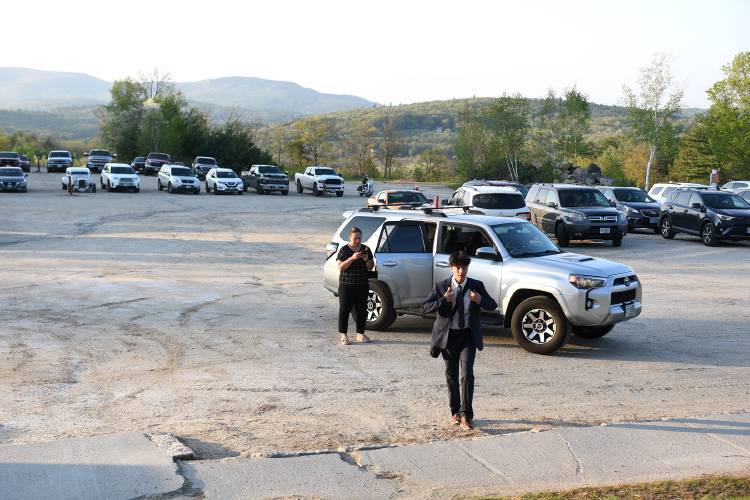
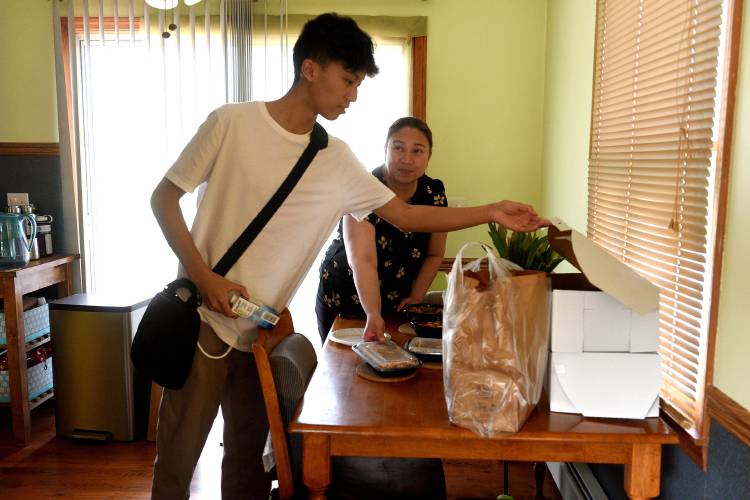
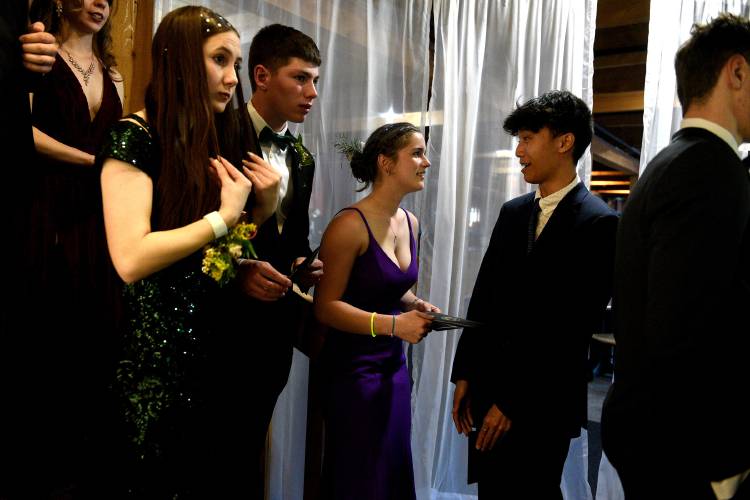
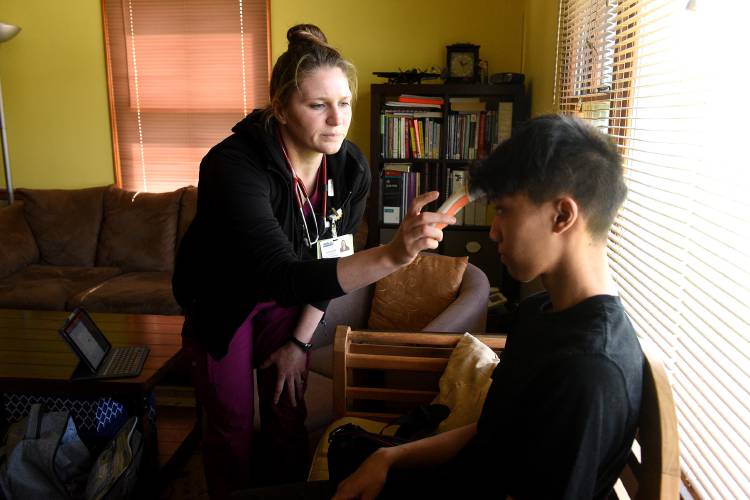
 Young Oxbow baseball team struggles, but coach still finds joy in teaching the game
Young Oxbow baseball team struggles, but coach still finds joy in teaching the game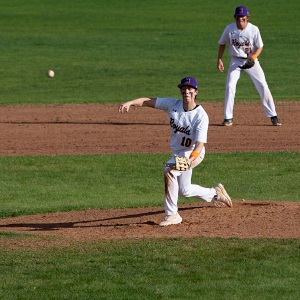 Local Roundup: Hartford tops Woodstock in close girls lacrosse contest
Local Roundup: Hartford tops Woodstock in close girls lacrosse contest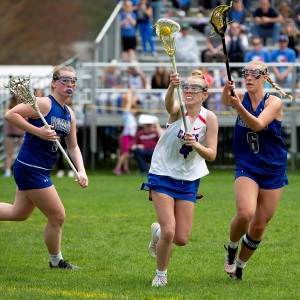 Hurricanes earn 10-9 victory over U-32 in girls lacrosse
Hurricanes earn 10-9 victory over U-32 in girls lacrosse Stevens, Newport baseball split high-scoring games
Stevens, Newport baseball split high-scoring games
